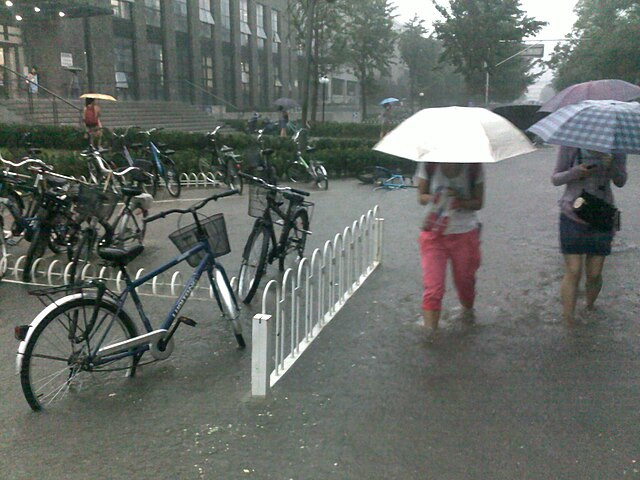At least 38 people have died and over 80,000 residents have been displaced in the Beijing region following a historic rainfall event that dumped nearly a year's worth of precipitation in just a few days. The intense storms triggered widespread flooding, landslides, and infrastructure failures across northern China, particularly in the capital city and neighboring Hebei province.
The Chinese state broadcaster CCTV reported 30 deaths in Beijing and eight in Hebei as of Tuesday. Most casualties in the capital occurred in the mountainous Miyun district, where 28 people perished, and Yanqing district, which saw two deaths. Officials described the deluge as "rare and highly destructive."
By Monday night, parts of Miyun recorded more than 21 inches of rain-just shy of Beijing's annual average of approximately 23 inches. "I'm 70 and I've never seen such a big flood," said a Miyun resident surnamed Dong, who lost two vehicles and household items in the rising waters. "If me and my wife didn't climb up to the roof, it would be over for us," he told Sky News.
The storms knocked out power to more than 130 villages and damaged over 30 sections of roads, according to state media. A man in Luanping county, Hebei, told Beijing News he was unable to contact his relatives because communications were down following a deadly landslide that killed four and left eight missing.
Chinese President Xi Jinping called the situation "critical" and ordered local authorities to prioritize rescue efforts. The central government allocated 350 million yuan ($48 million) in disaster relief to Beijing, Hebei, and other affected areas. China's Premier Li Qiang acknowledged the "serious casualties" and emphasized ongoing emergency efforts, Xinhua reported.
Water was released from a Miyun reservoir-the fullest it's been since 1959-causing river levels to rise downstream and prompting authorities to warn residents to keep away from flood zones. In Taishitun, about 60 miles northeast of central Beijing, streets were coated in mud and debris after floodwaters swept through.
"The flood came rushing in, just like that, so fast and suddenly," said Zhuang Zhelin, a building materials store owner clearing out mud with his family. "In no time at all, the place was filling up." His neighbor Wei Zhengming, a Chinese medicine practitioner, recalled, "It was all water, front and back... I just ran upstairs and waited for rescue."
Authorities activated a top-level emergency response Monday evening, suspending schools, construction, and outdoor tourism. By Tuesday morning, the city lowered its rainstorm alert and began reopening parks and attractions, though risks persist. The storm system is expected to shift eastward as coastal regions brace for Typhoon Co-may's landfall on Wednesday.
The recent disaster echoes similar deadly flooding in Beijing last year, which left at least 33 people dead.





